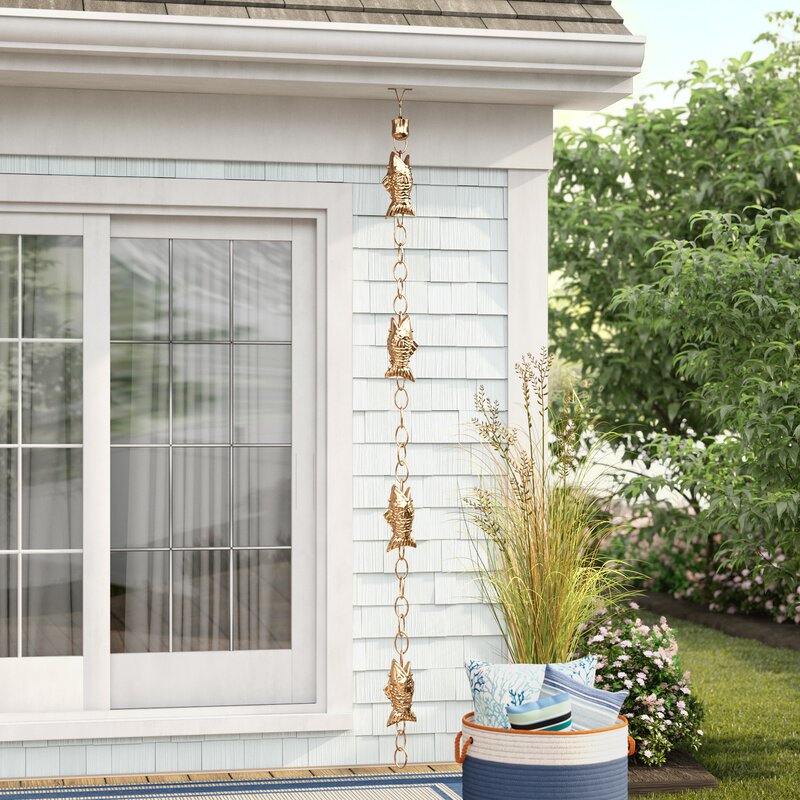We may earn revenue from the products available on this page and participate in affiliate programs. Learn More ›
Q: I want to replace my unattractive downspouts with something just as functional, only created for beauty—both visual and auditory. Can you tell me, what is a rain chain? Does it work as a downspout, and can I use one to collect rainwater in a basin or rain barrel?
Rain chains (kusari-doi) originated in Japan. Like with downspouts, a rain chain carries rainwater collected from the gutter down and away from the roof. Unlike a downspout, rain chains have two extra duties: elegance and melody. Not only are they beautiful, but they also sound like a day at the spa when the rain trickles down.
Rain chains come in various styles, but if you like DIY projects, these make a relatively easy project, and you can use them to collect rainwater for your garden. Read on to learn more about what rain chains are, and how to incorporate them around your home.
RELATED: Solved! How Often Should I Really Clean My Gutters?
Rain chains transform a plain gutter downspout into an aesthetically pleasing water feature.
A rain chain comes with an installation kit for attaching it to a gutter. Simply remove the downspout, then replace it with the installation kit at the top and connect the rain chain.
You can replace all downspouts around the house or specific ones. If you have rain barrels to collect rainwater, a rain chain will work just as well as a downspout or pipe to direct rainwater into the barrel. Or, perhaps you want to set one up in the backyard so you can hear the lovely sound it makes from the patio door when it’s raining.
It’s also possible your only desire is the aesthetic appeal, and adding charm to a garden—with basically zero maintenance needed. The main job of a rain chain is hanging and waiting for the rain. You don’t need to empty, clean, or check anything. Plus, they look pretty 24 hours a day, 7 days a week.
RELATED: The Best Rain Barrels for Water Collection and Conservation
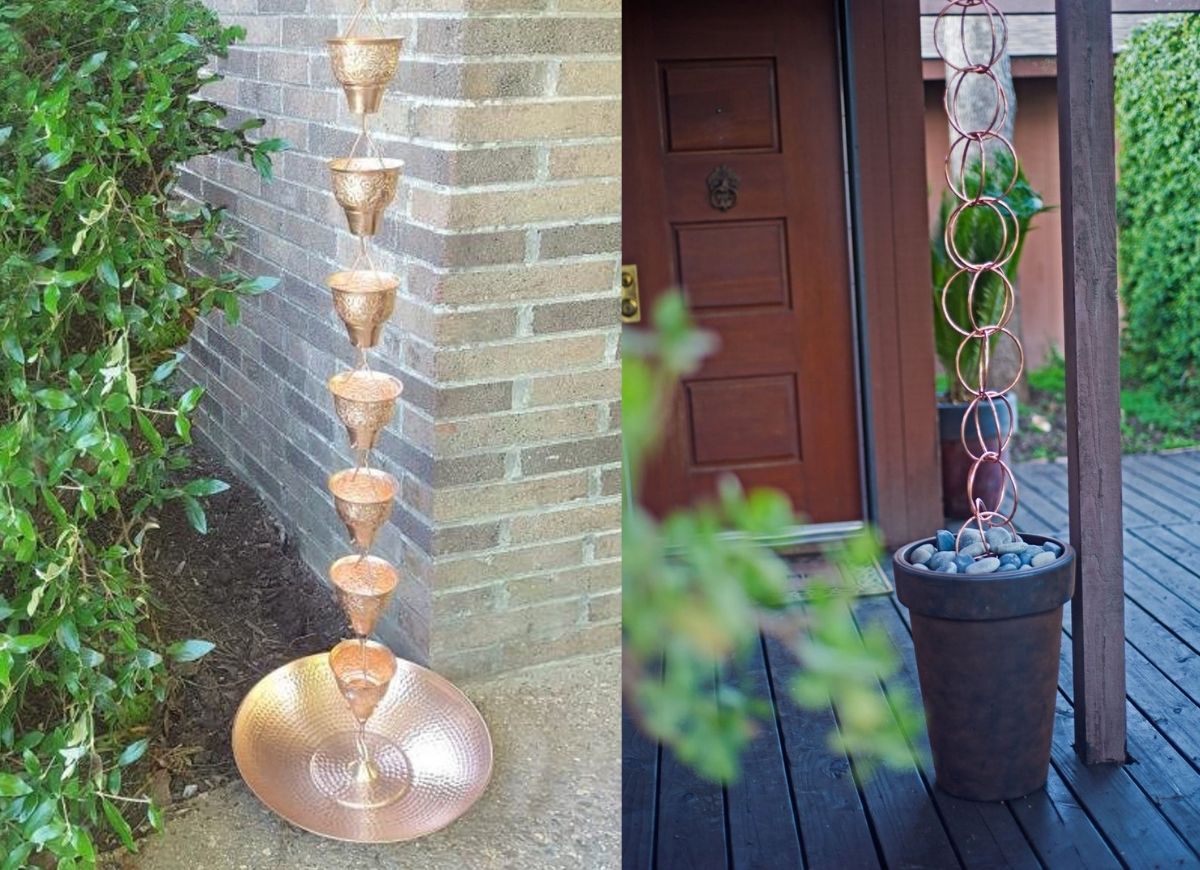
There are many different styles available to purchase, or you can make your own.
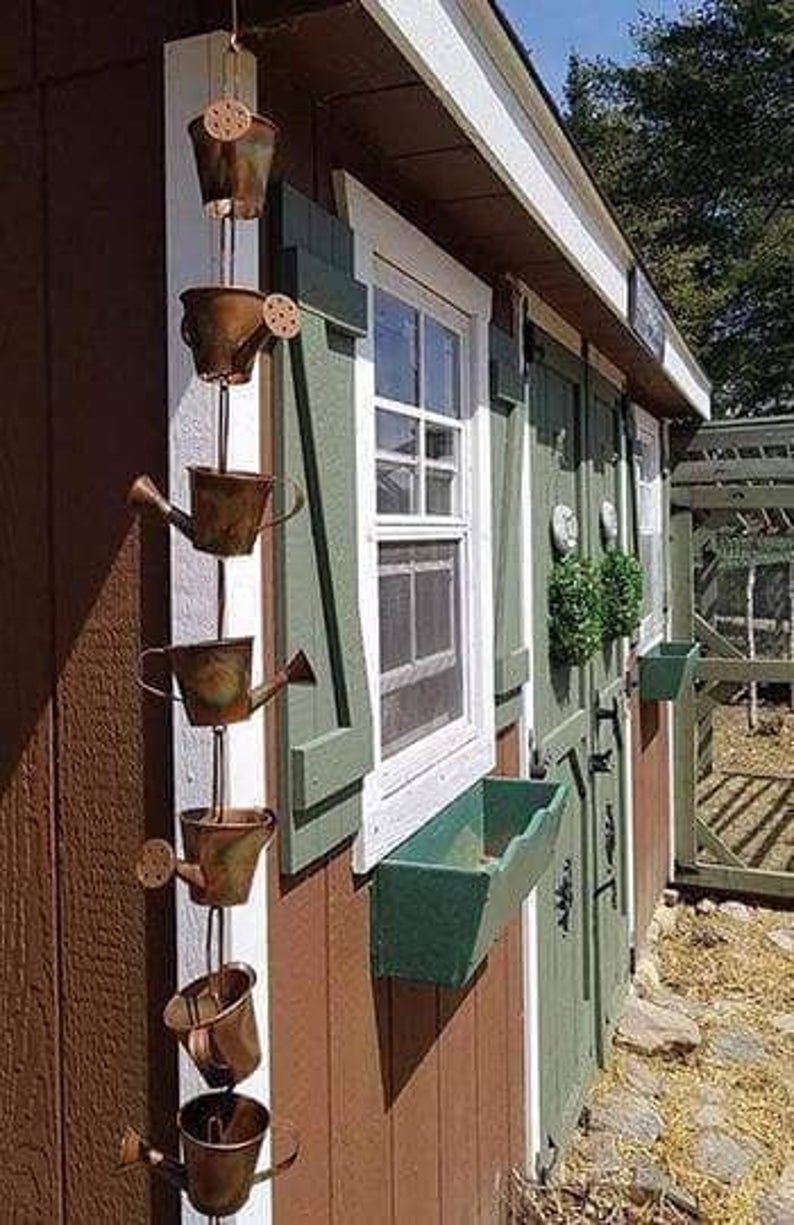
The two main styles of rain chains are cups and chains. Cup rain chains feature small containers linked together. The rain collects in the top cup and then spills over into subsequent cups in the chain.
Cups move more water than chains, and you can find almost any shape you can think of, including fish, umbrellas, and watering cans.
With chains, the water sort of dribbles down the chain links, which often feature interestingly shaped links. You can find chains where each link is differently shaped and others where all links in the rain chain are of the same design. Examples of chain designs include hearts, leaves, and hummingbirds.
You can also make a rain chain if you like DIY projects and are artsy. You can make them as unusual or as plain as you like.
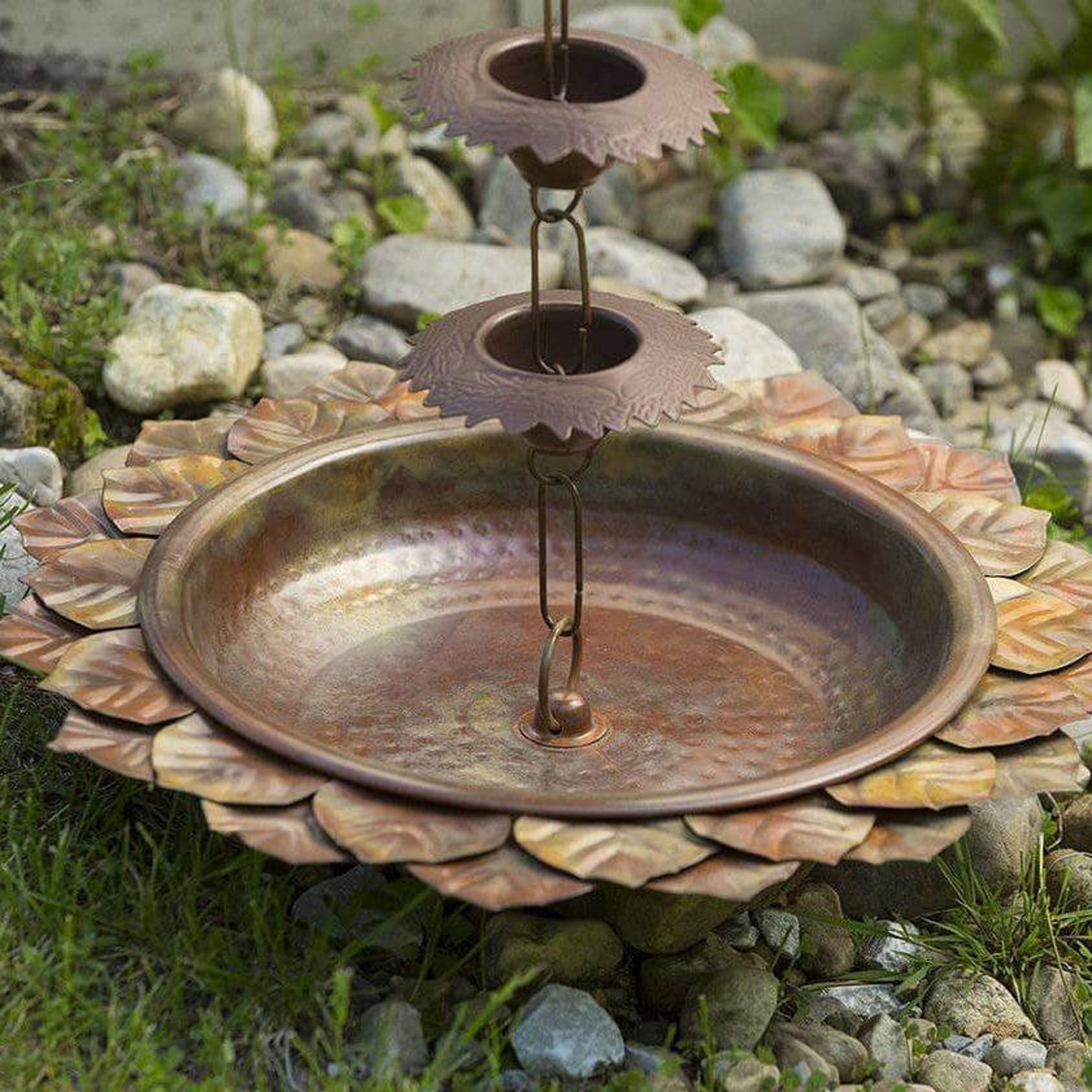
They channel rain from the roof or gutter into a rain barrel or decorative basin.
You can direct a rain chain into a rain barrel or decorative basin to save rainwater for later use in the garden or to service an irrigation system.
A few other uses for collected rainwater:
- Cleaning outdoor surfaces
- Bathing pets
- Composting
- Filling outdoor water features
- Washing a vehicle
You don’t need to attach a rain barrel or basin to all of your rain chains. You can if you would like to, or you can only connect one or two. Using rain barrels is especially nice in hotter areas where there are water shortages.
Rain barrels can come with a faucet and hose attachment at the bottom of the barrel, making it easy for you to access the water. Basins are generally small and won’t collect as much water.
RELATED: Solved! Is it Illegal to Collect Rainwater?
Rain chains are durable and weather well.
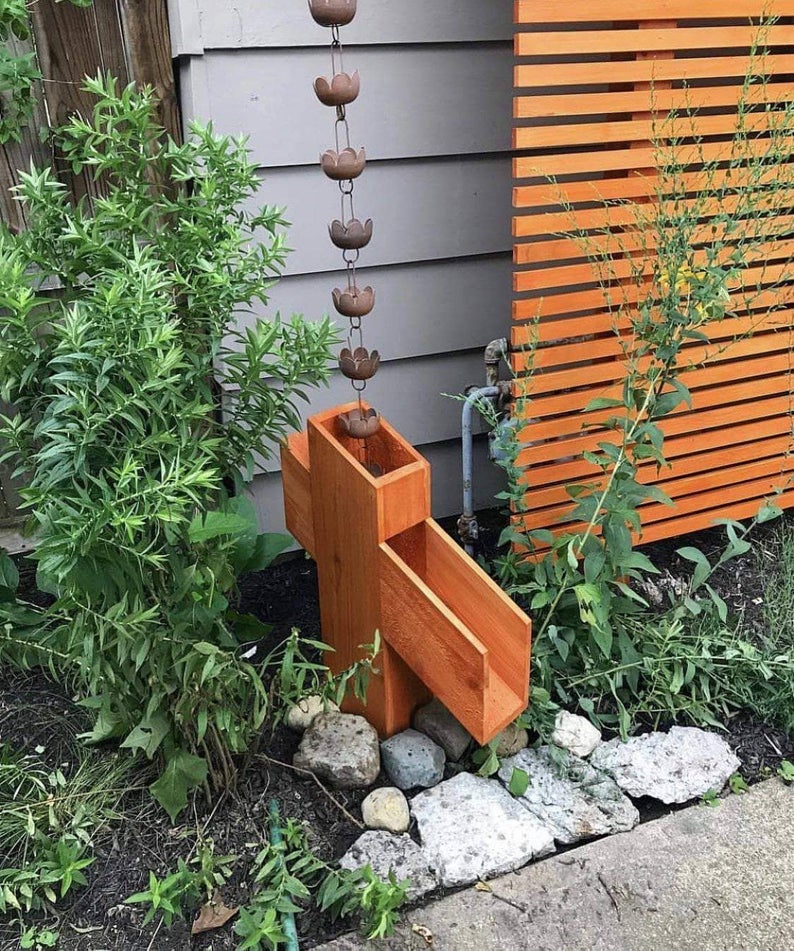
The most common rain chains are made with copper and weather into a lovely patina over time. You can also find silver aluminum chains that won’t rust or oxidize or change color over time. And for those who love color, you can find powder-coated rain chains that come in different colors.
Copper is a strong material, making rain chains durable, and it can be recycled.
Aluminum is lighter than copper, so if you want a rain chain longer than the typical 12 feet, you might want to consider it over copper.
